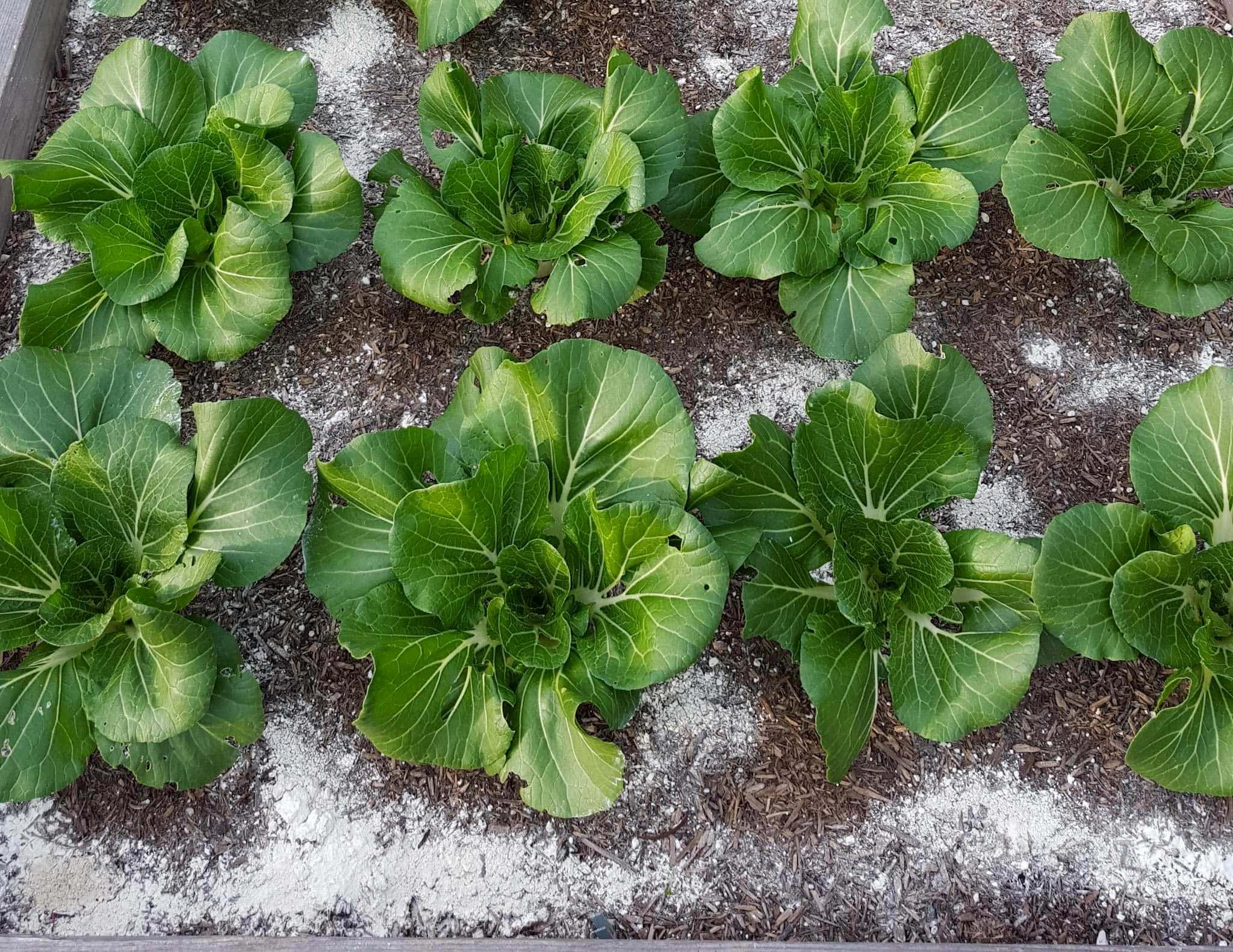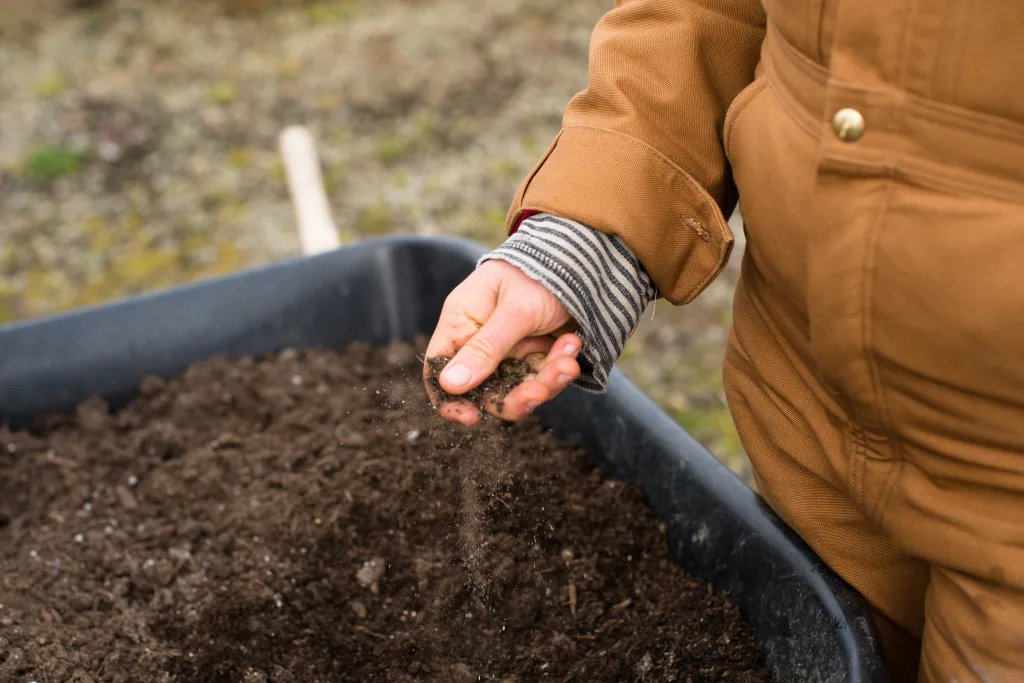Diatomaceous earth, also known as DE, is a natural substance that has been used for centuries for various purposes. It is made from the fossilized remains of microscopic aquatic plants called diatoms. DE is a fine powder that is composed of sharp-edged particles, which give it its unique properties.
One of the common concerns when using diatomaceous earth is whether it will harm earthworms, which play a crucial role in the health and fertility of soil. The good news is that diatomaceous earth is generally safe for earthworms and will not harm them.
Earthworms are not insects, but rather belong to a different group of animals called annelids. Unlike insects, earthworms have a soft, moist body and do not have an exoskeleton. This structural difference allows earthworms to be unaffected by the drying and sharp properties of diatomaceous earth.
In fact, diatomaceous earth can actually be beneficial for earthworms in some cases. It can help control pests and parasites that may harm earthworms, such as mites or nematodes. By treating the soil with diatomaceous earth, you can create a healthier environment for earthworms to thrive.
However, it is important to note that while diatomaceous earth is safe for earthworms, it can still harm other beneficial insects. Ladybugs, green lacewings, butterflies, bees, and other “good guys” can be negatively affected if they come into contact with diatomaceous earth. Therefore, it is recommended to use diatomaceous earth with discretion, especially around plants that these beneficial insects may frequent.
When using diatomaceous earth, it is also important to follow proper application techniques. Avoid using it around flowers or other areas where beneficial insects are likely to visit. Instead, focus on treating areas where pests or unwanted insects are a concern, such as worm bins or garden beds.
To apply diatomaceous earth, simply sprinkle a thin layer over the targeted area. Make sure to wear gloves and a mask to avoid inhaling the fine particles. Reapply as needed, especially after rain or heavy watering, as the effectiveness of diatomaceous earth can be reduced when it gets wet.
Diatomaceous earth is generally safe for earthworms and can even be beneficial in controlling pests and parasites that may harm them. However, it is important to use diatomaceous earth with discretion and avoid using it in areas where beneficial insects may be present. By following proper application techniques, you can effectively use diatomaceous earth without harming earthworms or other beneficial insects.
Will Diatomaceous Earth Hurt My Earthworms?
Diatomaceous earth (DE) will not harm earthworms. Earthworms are not affected by the abrasive nature of DE because they have a unique digestive system that allows them to break down and digest particles of DE. In fact, DE can be used in worm bins to treat for parasites, fungus gnat larvae, and other unwanted insects without causing harm to the earthworms.
Here are a few reasons why DE is safe for earthworms:
1. Digestive ability: Earthworms have specialized digestive systems that enable them to digest organic matter, including particles of DE. Unlike insects, earthworms are structurally different and can handle the abrasive nature of DE without any negative effects.
2. Harmless to warm-blooded animals: DE is non-toxic and harmless to warm-blooded animals like humans and pets. Therefore, if you are using DE in your garden or worm bin, you don’t have to worry about it causing any harm to your earthworms or other beneficial organisms.
3. Effective against unwanted insects: DE is often used as a natural pest control method because it can effectively eliminate pests like mites, ants, and fleas. By treating your worm bin with DE, you can control parasites or unwanted insects while ensuring the safety of your earthworms.
Diatomaceous earth is safe to use in your worm bin and will not harm your earthworms. Its abrasive nature is not a concern for earthworms due to their unique digestive system. So, feel free to use DE as a natural and effective control measure for pests in your worm bin without worrying about harming your earthworms.

Will Diatomaceous Earth Kill Worms?
Diatomaceous earth (DE) can kill worms. DE is a natural substance that is made up of the fossilized remains of microscopic aquatic organisms called diatoms. It is commonly used as a pesticide and insecticide due to its ability to effectively control pests, including worms.
DE works by physically damaging the exoskeleton of worms, leading to their dehydration and eventual death. The sharp edges of the microscopic diatoms in DE scratch and cut through the protective outer layer of the worms, causing them to lose moisture rapidly. This process is known as desiccation.
The drying effect of DE is particularly effective against worms because these organisms rely on a moist environment to survive. As the worms lose moisture through the damaged exoskeleton, their bodies become dehydrated, leading to their demise.
A study conducted in 2018 specifically focused on the effectiveness of DE against termites, which are a type of worm-like insect. The study found that DE had a 100% kill-rate of these tunneling pests, further demonstrating its efficacy in eliminating worms.
Diatomaceous earth can effectively kill worms by dehydrating them through the sharpness of its microscopic diatoms and its drying effect. Its ability to target and control pests has made it a popular choice for natural pest control.
What Insects Will Diatomaceous Earth Kill?
Diatomaceous earth is an effective natural solution for controlling various pests. It is registered for use against bed bugs, cockroaches, crickets, fleas, ticks, spiders, and many other insects. In fact, there are numerous non-pesticide products available that contain diatomaceous earth, showcasing its versatility in pest control. Here is a list of insects that diatomaceous earth can effectively kill:
– Bed bugs
– Cockroaches
– Crickets
– Fleas
– Ticks
– Spiders
It is worth noting that diatomaceous earth works by dehydrating insects, causing damage to their exoskeletons, and ultimately leading to their demise. This natural substance can be used in various forms, such as dust, powder, or as an ingredient in other pest control products. Its wide range of applications and effectiveness against different insects make diatomaceous earth a popular choice for those seeking natural pest control solutions.
Does Diatomaceous Earth Harm Beneficial Insects?
Diatomaceous earth (DE) can indeed harm beneficial insects if they come into contact with it. While DE is generally considered safe for humans and pets, it can be harmful to insects, including ladybugs, green lacewings, butterflies, bees, and other beneficial insects.
When these insects come into contact with DE, the microscopic particles of silica in the substance can cause damage to their exoskeletons. As a result, they may become dehydrated and die. This can have negative consequences for the ecosystem, as beneficial insects play a vital role in pollination and natural pest control.
To minimize the harm to beneficial insects, it is important to use DE with discretion and caution. Avoid applying it directly on plants that these insects may frequently visit, particularly around flowers. Instead, focus on applying DE in areas where pests are present or in spaces where beneficial insects are unlikely to encounter it.
It is also worth considering alternative pest control methods that are less harmful to beneficial insects. Integrated pest management techniques, such as using insecticidal soaps, neem oil, or introducing predatory insects, can help control pests while preserving the population of beneficial insects.
While diatomaceous earth can harm beneficial insects if they come into contact with it, using it with discretion and avoiding its application in areas frequented by these insects can help minimize the impact. Exploring alternative pest control methods that are safer for beneficial insects may also be beneficial.

Conclusion
Diatomaceous Earth (DE) is a natural and effective solution for controlling pests in various settings. Its microscopic sharpness and drying effect make it a powerful tool for dehydrating and ultimately killing insects and worms. DE has been proven to have a 100% kill-rate of termites and is registered for use against a wide range of pests such as bed bugs, cockroaches, fleas, ticks, and spiders.
One of the great advantages of DE is that it is safe for warm-blooded animals and red wiggler worms, making it an ideal choice for treating worm bins. Unlike insects, compost worms can actually digest particles of DE, making it a non-toxic option for pest control in their environment.
However, it is important to use DE with discretion around plants and flowers that beneficial insects, such as ladybugs, green lacewings, and bees, may frequent. While DE can be effective in eliminating unwanted pests, it can also harm beneficial insects if they come into contact with it.
Diatomaceous Earth is a versatile and environmentally-friendly solution for pest control. Its natural properties make it an attractive choice for those looking for effective and safe methods to combat pests in their homes, gardens, and other areas.
